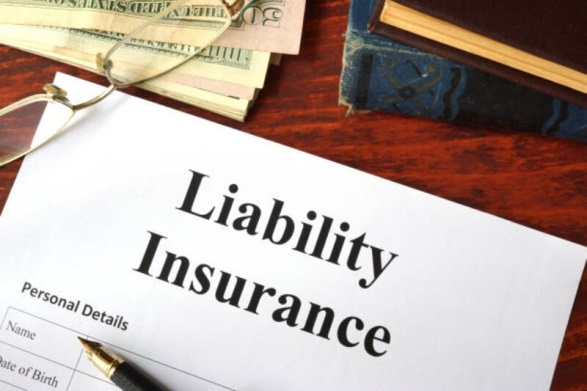As a small business owner, you know that there are many risks and potential liabilities associated with running your business. Unfortunately, no matter how careful or well-prepared you try to be, accidents happen and things don't always go the way we expect. That's why it's vital that all small businesses have general liability insurance in place - to protect against unexpected harm caused by malicious intent or negligence of employees or customers. In this blog post, we'll explore why having general liability insurance is essential for any successful small enterprise, as well as provide tips on finding the right coverage for your unique needs. Read on to learn more!
Overview of General Liability Insurance
General liability insurance, also known as commercial general liability (CGL) insurance, is a type of coverage that protects businesses from potential lawsuits and claims for bodily injury or property damage caused by the business operations. This can include accidents, injuries or damages caused by products or services provided by the business, as well as accidents occurring on the business premises. Without this type of insurance, small businesses may be at risk of facing significant financial losses or even bankruptcy in the event of a lawsuit.
How General Liability Insurance works for small businesses?

In general, when a small business has a general liability insurance policy in place and is faced with a lawsuit or claim, the insurance company will step in to provide legal representation and cover any settlements or damages awarded. This can help protect the business's assets and reputation from being severely impacted by legal proceedings. In addition, many policies also offer coverage for medical expenses and legal fees associated with the claim.
Importance of General Liability Insurance for Small Enterprises
Legal Requirements
In many states, general liability insurance is required by law for certain types of businesses. For example, contractors and healthcare providers are typically required to have this type of coverage before they can operate legally. Additionally, some clients or partners may require proof of insurance before doing business with a small enterprise. By having general liability insurance in place, you can ensure that your business is meeting all legal requirements and avoiding any potential legal issues.
Protection Against Lawsuits
Even if your business is not legally required to have general liability insurance, it's still a smart investment for protecting against lawsuits and potential financial losses. Accidents and mistakes can happen in any business, and without insurance, you may be responsible for paying out expensive legal fees and damages. With general liability insurance, your policy will cover the cost of legal defense as well as any settlements or judgments against your business.
Professional Image
Having general liability insurance can also enhance your professional image and credibility with clients and partners. By showing that your business is insured, you are demonstrating that you take your obligations seriously and are prepared to handle any potential liabilities or risks associated with your business operations. This can give others confidence in working with your small enterprise and help set you apart from competitors who do not have insurance.
Protection from Liability Claims
One of the main reasons why general liability insurance is crucial for small businesses is that it can help protect against liability claims. Whether it's a slip and fall accident on your business premises or a product malfunction that causes harm to a customer, general liability insurance can provide the necessary coverage to protect your business from financial loss.
Finding the Right Coverage for Your Small Enterprise
When it comes to general liability insurance, it's important to carefully consider your specific business needs and risks. Not all policies are created equal, and what works for one small enterprise may not work for another. It's crucial to do thorough research and consult with insurance professionals to determine the right coverage for your unique business operations.
Some factors to consider when selecting a policy include the size of your business, the type of products or services you offer, and your business location. You may also want to consider additional coverage options, such as cyber liability insurance or product liability insurance, depending on the nature of your business.
Steps to Obtain General Liability Insurance for Small Enterprises

If you're convinced that general liability insurance is a must-have for your small enterprise, here are some steps to help you obtain the right coverage:
- Research and compare different policies from reputable insurance companies.
- Consult with an insurance agent or broker to determine the best policy for your business needs.
- Understand the coverage terms and any exclusions in the policy.
- Determine your business's risk factors and consider additional coverage options if needed.
- Obtain quotes from multiple insurance providers to ensure you are getting the best price for your coverage.
- Carefully review and sign the policy contract, making sure all necessary information is correct.
- Stay up-to-date with payments to maintain continuous coverage for your small enterprise.
By following these steps and staying informed about your coverage, you can ensure that your small enterprise is adequately protected against potential liabilities and risks.
Conclusion
General liability insurance is a vital investment for small enterprises. Not only does it protect against potential legal issues and liabilities, but it also enhances your professional image and helps ensure compliance with legal requirements and contracts. By taking the time to research and obtain the right coverage for your business, you can have peace of mind knowing that your small enterprise is safeguarded against unexpected risks and challenges. Remember to regularly review your policy and make any necessary updates as your business grows and evolves.







